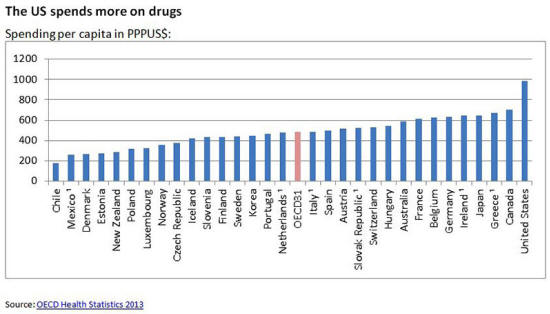|
Currently, there are only 2 countries that allow direct-to-consumer advertising on prescription medication - the U.S.A. and New Zealand.
Other countries have strict bans on this type of advertising, for several reasons.
When you think about it, should you really be able to ask your doctor for a specific prescription armed with only the information you obtained through an advertisement aimed at getting you to buy the drug?
That should be their job - to prescribe to you a drug if they think it is appropriate to treat your specific condition.
Worse still, the likelihood that doctors are making commissions, or receiving some other kind of incentive, for prescription drug sales is becoming increasingly apparent, which makes it is even more exciting that the American Medical Association has stepped up to request a ban on these advertisements.
The main reason that the American Medical Association (AMA) is calling for this ban is because having these advertisements encourages a higher demand for even more expensive treatments, despite the clinical effectiveness of less costly alternatives.
It is important to note that in 2014 alone, Americans spent over $370 Billion on prescription drugs.
One has to wonder if this number would have been even close to that high had there not been advertisements for these drugs. How many people out there see an ad for a drug that can relate to their problem and assume that they need to have the drug?
Nearly 70 percent of all Americans are on at least one prescription medication and the amount of deaths caused by prescription drugs has sky rocketed over the past decade.
Many prescription drugs are also highly addictive; to many people, advertising these substances is the equivalent to advertising cocaine or heroin.
If this ban goes through it will provide a great opportunity to see if prescription drug sales in the USA finally level out (or even drop) because the need for these substances is no longer being manufactured, at least on their television screens.
What John Oliver Had To Say
|



